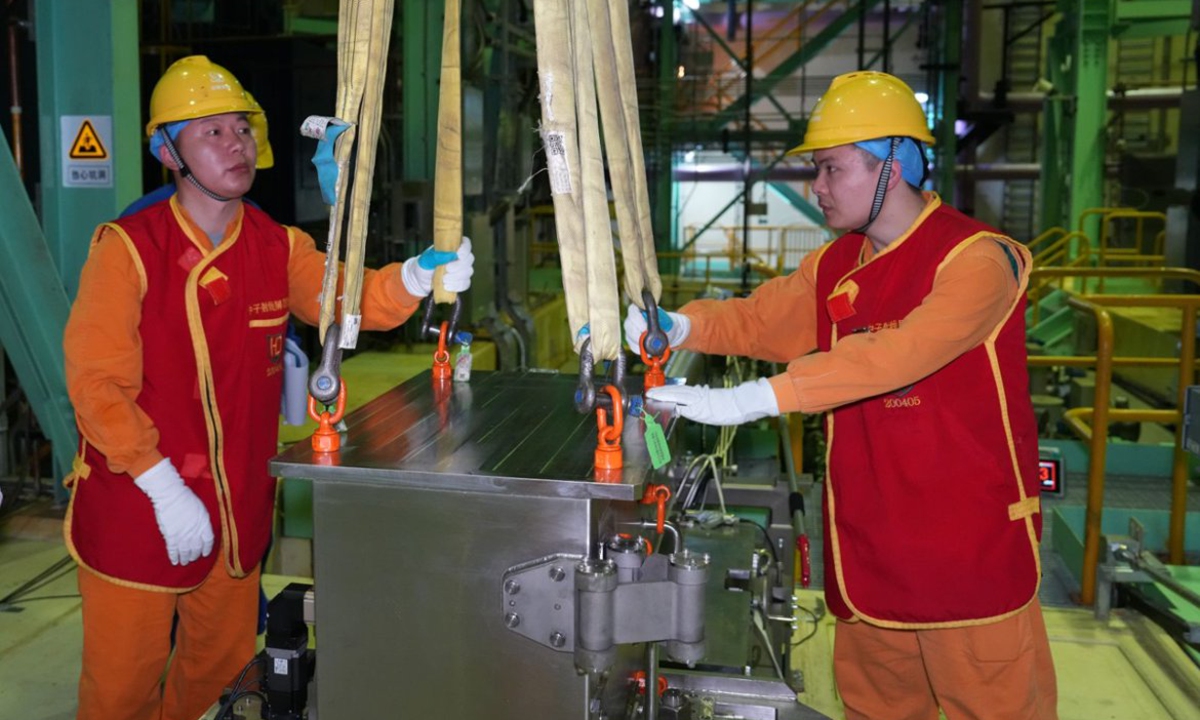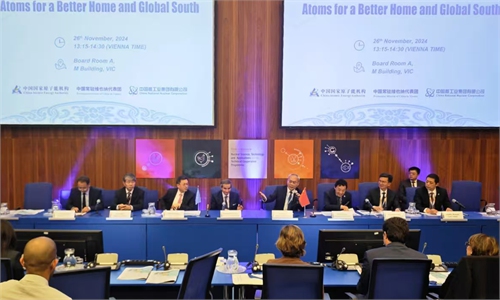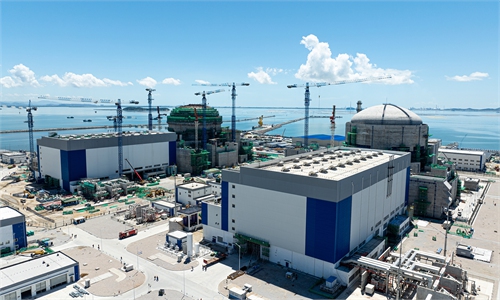Chinese firm masters Yttrium-90 production using commercial reactors, offering new hope for liver cancer patients

Workers operate the extraction of Yttrium-90 glass microspheres irradiated in the "Hefu-1" unit at the Qinshan Nuclear Power Plant in Haiyan, East China's Zhejiang Province on June 14. Photo: Courtesy of CNNC
China has successfully mastered the technology to produce Yttrium-90 from commercial nuclear reactors, making large-scale production possible and paving the way for new breakthroughs in the medical care field, China National Nuclear Corp (CNNC), one of the project's operators, told the Global Times in a statement on Sunday.
Nuclear medicine plays a vital role in the diagnosis and treatment of cancer. Hailed as a "precision nuclear weapon" in liver cancer intervention, it destroys tumor cells by releasing beta radiation and has become a widely adopted therapeutic option for intermediate to advanced stages of liver cancer worldwide.
The achievement was made possible after Yttrium-90 glass microspheres, irradiated in the Hefu-1 unit at the Qinshan nuclear power plant in Haiyan, East China's Zhejiang Province, were successfully extracted and passed all relevant quality inspections, according to CNNC.
Yttrium-90 glass microspheres are a beta-emitting radiopharmaceutical used in a minimally invasive procedure that delivers the microspheres through the hepatic artery via interventional vascular techniques, enabling precise targeting of liver tumors.
The extracted Yttrium-90 must undergo disassembly and analysis by the researchers, with key performance indicators being thoroughly tested. Only after passing these evaluations can it move on to subsequent application stages, the company said.
Testing has confirmed that the specific activity and other key parameters of this batch of Yttrium-90 glass microspheres meet the design specifications, demonstrating the capability for sustained, large-scale production, which provides a solid foundation for clinical applications, according to CNNC.
Transarterial radioembolization using Yttrium-90 microspheres is a minimally invasive procedure in which microspheres loaded with Yttrium-90 are delivered through the hepatic artery, enabling precise targeting of liver tumors, CNNC said.
Once administered, the microspheres emit beta radiation with an average tissue penetration of just 2.5 millimeters, concentrating the therapeutic effect within the tumor while minimizing exposure to surrounding healthy liver tissue. Due to their size, the microspheres cannot pass through capillaries or veins, thereby limiting damage to normal tissues.
Compared with conventional external beam radiotherapy, Y-90 microsphere therapy offers several advantages, including higher radiation doses, a smaller radiation field, and greater precision, significantly reducing harm to healthy tissue, according to CNNC.
China's domestic production of Yttrium-90 glass microspheres marks not only a significant technological advancement, but also a ray of hope for countless liver cancer patients, an industry expert told the Global Times. For an extended period, Yttrium-90 glass microspheres used in clinical practice in China were entirely reliant on imports, the expert said.
Global Times


